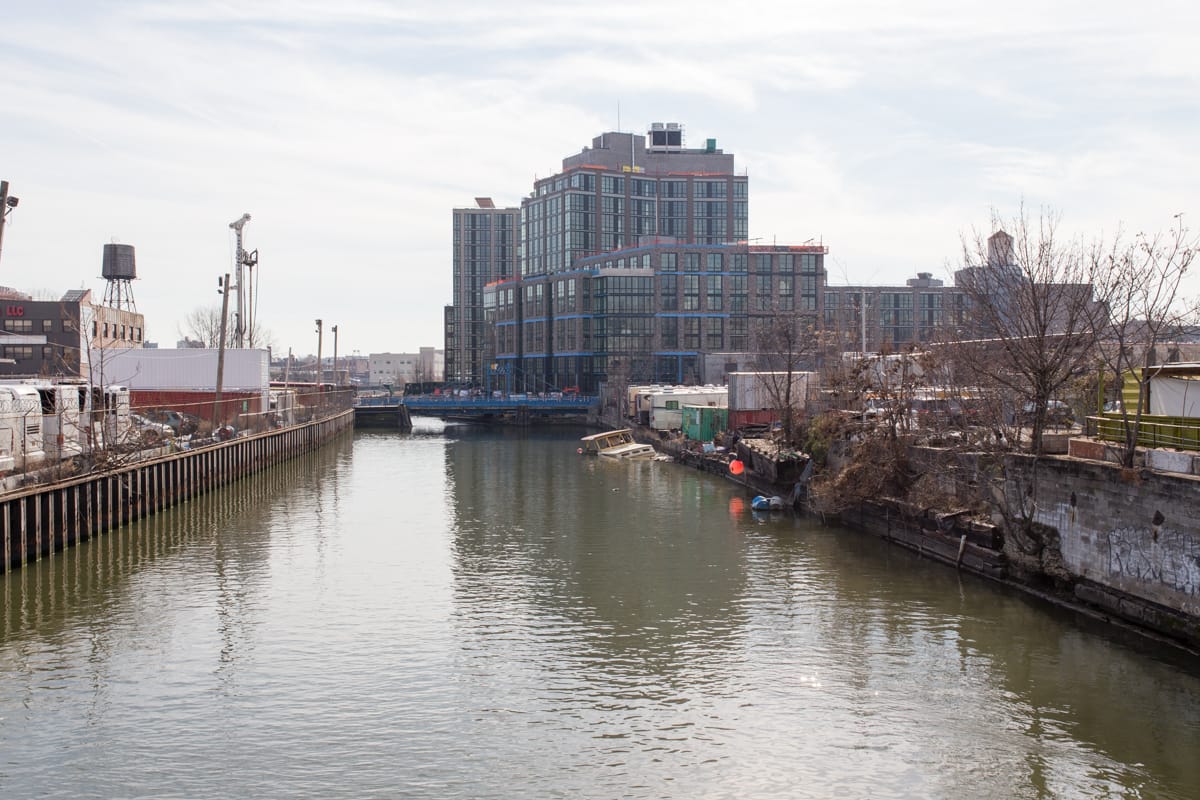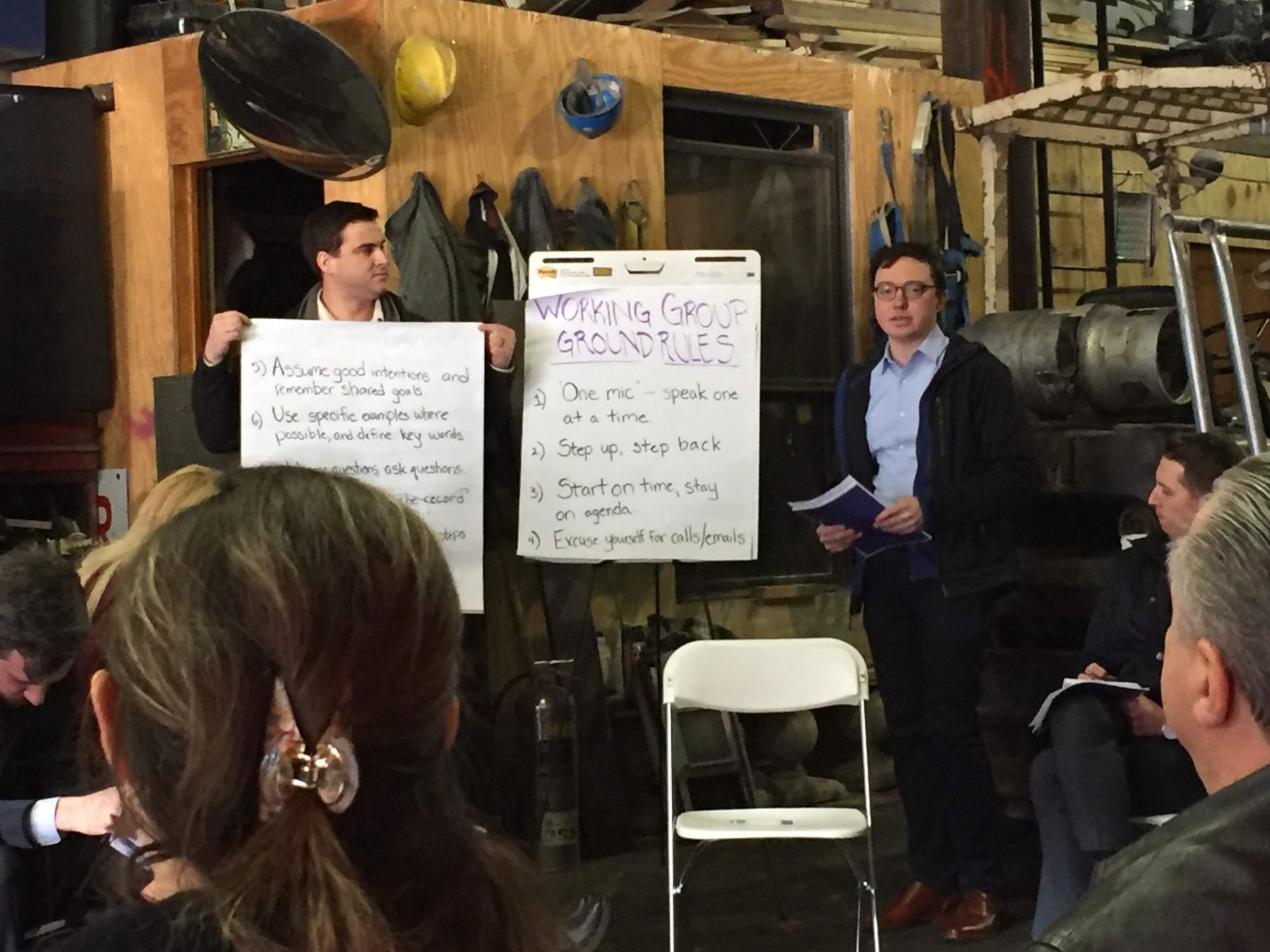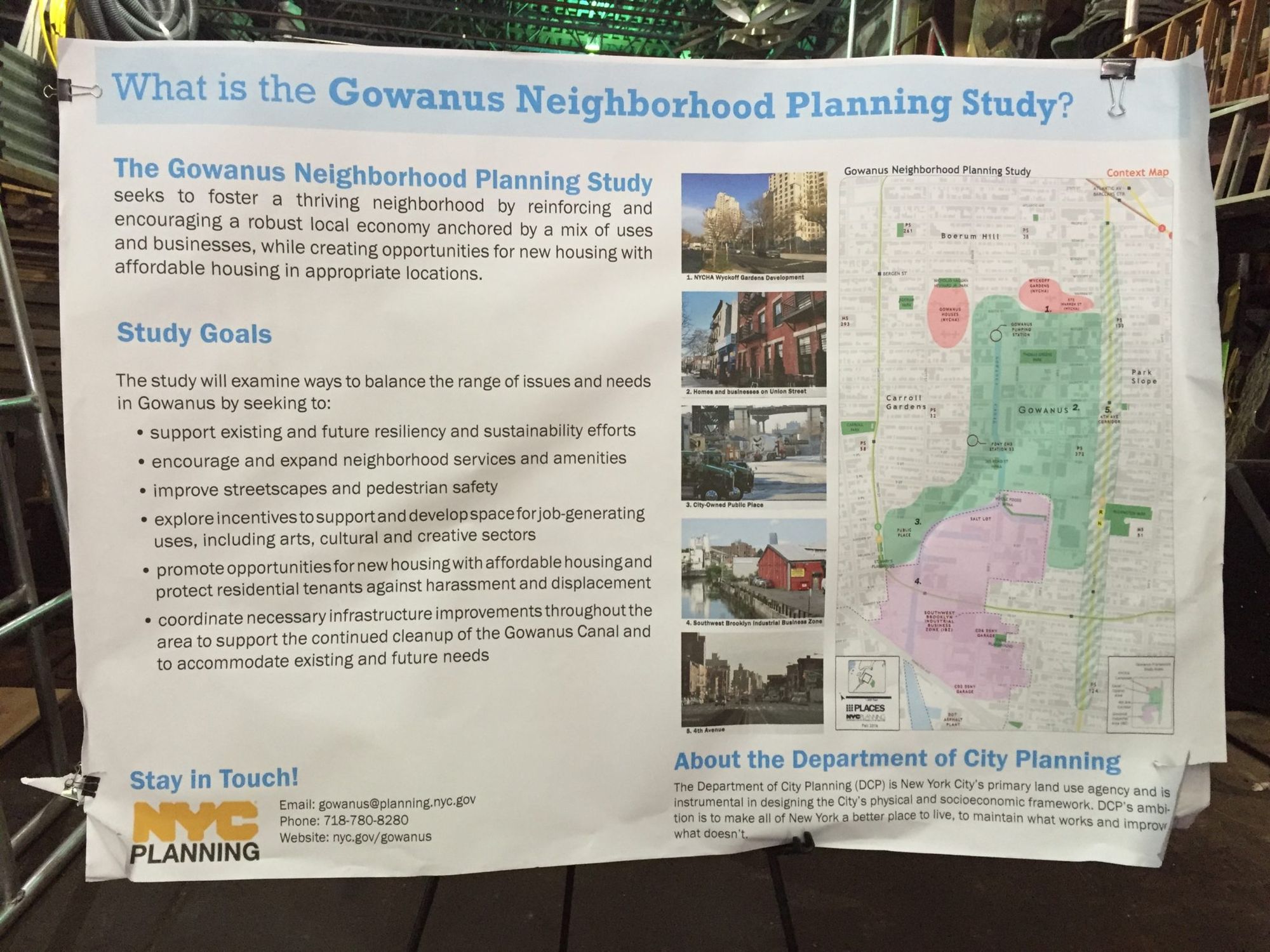Gowanus Neighborhood Planning Study: A Collaboration With The Community


Business owners, residents, and local community groups gathered Wednesday afternoon to discuss the initial plans for the industry and economic development of the Gowanus Neighborhood Planning Study.
Launched in October 2016, the Gowanus Neighborhood Planning Study’s mission is to work with the community in establishing a mutually prioritized set of recommendations that will be used to draft a land use and planning framework for the Gowanus area. The public process includes various forms of community engagement and participation, such as public meetings, workshops, and other methods of outreach.
The Study is led by the Department of City Planning with agency partners including the NYC Economic Development Corporation, NYC Department of Transportation, NYC Department of Small Business Services, and NYC Housing Authority.
The Study consists of 5 Working Groups made up of residents, local business owners, and other community stakeholders who will collaborate with, advise, and inform the City Planning team members and assist in developing the list of recommendations that will help set up the land use framework. Along with Industry and Economic Development, the other Working Groups include Housing, Arts and Culture, Public Realm, and Resiliency and Sustainability.

The City Planning team members will act as facilitators and coordinators during all meetings, with an anticipated schedule of one meeting per month until June or July (or longer if needed). Staff members from the other city agencies will provide background, technical, and logistical information to the Working Groups and serve as liaisons with their respective city offices.
The overall goal of the Gowanus Neighborhood Study is to support existing and future resiliency and sustainability efforts; encourage and expand neighborhood services and amenities; improve pedestrian safety and access along the Gowanus Canal; explore ways to support and develop space for job-generating uses (including industrial and arts and cultural uses); promote opportunities for new housing with an emphasis on affordable units while protecting current residents; and coordinate necessary infrastructure improvements throughout the area to support the continued cleanup of the Canal.
The basis of Wednesday’s meeting was essentially for the City Planning team to introduce themselves and members of the partnering city agencies, meet the community and hear their concerns, and provide an overview of the Industry and Economic Development Working Group, outlining the structure of the group and its proposed goals. Due to the large turn-out, the meeting split up into four break-out groups for approximately 40 minutes to review, discuss, and provide feedback on the proposed goals.
After the break-out groups finished reviewing the draft of Working Group’s goals, everyone reconvened to discuss. The primary concerns raised included the need to clarify and identify industrial and mixed-use developments, maintain a balance between all types of usage developments, create jobs for the community, and ensure that businesses inside and outside of the Industrial Business Zone are protected. The IBZ is situated approximately between 3rd and 10th Streets with industrial and manufacturing businesses located within the zone receiving tax credits and services. Sixteen IBZs were established across the city in 2006 to protect manufacturing districts and promote industrial growth.

Jonathan Keller, a Senior Planner at NYC Department of City Planning, conducted the meeting and served as the timekeeper. He said that next steps will include his department’s analysis of all the feedback collected and updating the proposed goals of the Working Group for the next meeting which will focus on existing conditions, operations, and transportation.
Keller also mentioned that his team is working on developing an online engagement tool to make it easier for Study organizers to share information and updates with all the Working Groups as well as the community.
The Gowanus Neighborhood Planning Study’s Resiliency and Sustainability Working Group met in December 2016. You can find a recap of that meeting here.



